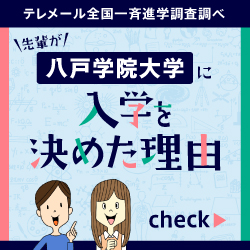Faculty of Business
Philosophy, Purpose, Educational Objectives, Policy

Educational Philosophy
To foster people who can conduct research and practice closely related to local business and culture.
Purpose
Based on learning about management, accounting, information, commerce, etc., develop business people who have business mind, ability to analyze and solve regional problems, and develop human resources that contribute to regional development.
Educational Objectives
- Analyze regional issues through their respective occupations and learn capabilities of public interest, practical skills, professionalism and profitability.
- To foster a business mind and challenge learning through market participation research activities, internships, local community activities, participation and exchange with venture business, NPO, and local government activities.
Three Policies
Diploma Policy (Graduation Certification / Degree Award Presentation Policy)
- Learning through “Reading, Writing, Listening, Talking, Using IT” in order to acquire the basic attitude to acquire academic knowledge, deepening cultural knowledge, acquiring the foundation of business studies such as management, accounting, information, and commerce.
- In order to discover, analyze and solve regional issues, students acquire the ability of public interest, practical skills, professionalism and profitability.
- Through community activities, field work, international exchange, etc., students acquired the necessary behavior and communication skills for business.
Curriculum Policy (Curriculum Development and Implementation Policy)
- In order to cultivate basic attitude to acquire academia (reading, writing, listening, talking, using IT), basic exercises, presentations, Japanese literacy, information processing, foundational learning is arranged in the first year. After the second year, depending on future career and area students want to learn, specialized research exercises are arranged to cultivate the basic abilities of business studies such as management, accounting, information, and commerce. Also, career design for each grade is provided so that students can think independently about their future.
- In order to discover, analyze and solve regional tasks, the “Management Course” and “Public Servant Course” are aimed at nurturing human resources with practical skills, professionalism and profitability. The “Management Course” includes “entrepreneur / business program” to train students who will be active in companies with professional knowledge and skills such as management, accounting, commercial etc., nurturing students who are aiming at being experts on information “IT / web creative program”, and “agricultural management program” to train students engaged in agricultural management.
The “Public Servant Course” has a “public management program” aimed at nurturing students who work for local governments and communities, and the “education career program (commercial / information)” aims for students to acquire commercial and information teaching licenses. - In order to cultivate the ability of public interest, practical skills, professionalism and profitability, the elective courses are necessary which further enhance student expertise based on compulsory courses. Arranged with consideration of business field work and business special theory (community activation system theory), conducting regional activities and field work through classes, conducting short-term study abroad and learning languages, the international exchange of students is promoted.
Admission Policy
With regard to the fields of “management / accounting / information / commerce” as the foundation of business studies, students are motivated to learn autonomously with strong interest through various learning styles in the business society for their future. We desire a person who is willing to judge tasks themselves, examine them, find a practice solution to problems in collaboration with other students and the local community. Furthermore, a “basic academic ability” and “communication ability” is necessary to understand business studies, and we accept those who have the ability to think independently, to analyze various situations, and has the skills to practically implement those ideas.
[Specific Acceptance Policy of the Department of Business]
- With regard to the fields of “management / accounting / information / commerce”, the student has a desire to learn autonomously with strong interest.
- Through the learning of business studies, the student should have the will to judge and examine various problems in the community, to find solutions, and to implement them in cooperation with other students and the local community.
- In addition to the following basic high school subjects of “Japanese”, “Mathematics”, “Foreign Language (English)” at high school, Learning “World History A” or “World History B”, “Contemporary Society” or “Ethics”, “Politics and Economy”, “Information Study for Participating Community” or “Information Study by Scientific Approach”, students should have sufficient basic academic skills.
- Students should have basic communication skills such as ‘basic reading ability’ to read materials and sentences, and ‘expressive ability’ to properly express their understanding and thoughts verbally, in prose and through presentations.
【Method of Judgment in Enrollment Selection】
- With regard to the fields of “management / accounting / information / commerce”, motivation to learn autonomously with strong interest is judged by paper examination and interview.
- Through paper exams and interviews, judgment about the ability to examine various problems in the local community through business studies, to find solutions, and implement these in practice while working in cooperation with students and local people is also considered.
- Regarding the major subjects studied at high schools, it is judged by university paper examination and academic ability examination.
- Basic communication skills such as reading comprehension and expressiveness are judged by paper examination, interview or essay.











